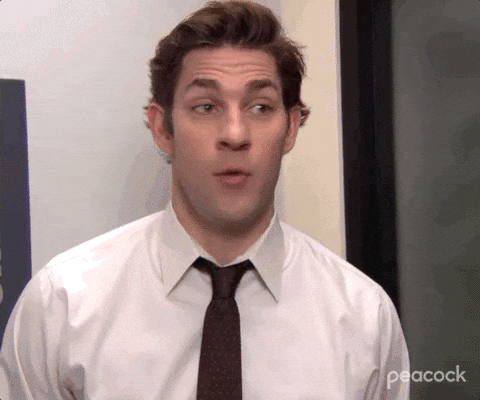- The Greenblast
- Posts
- Communication: art or science?
Communication: art or science?
Or both? Which one more? And what EXACT PERCENTAGE??
Hey Greenblasters!
Happy muthafuckin Thursday.
I’m actually writing this on Tuesday, while my daughter is sleeping (she’s been vomiting all morning, poor little kid).
But YOU’RE reading this on a Thursday.
Or maybe a Friday. If so, what the fuck took you so long?!

Wow, 2 f-words in the first 17 seconds. We’re off to a great start.
Okay, here’s the Greenblast:
Is communication more art or science?
I remember asking this question as an English teacher (about learning English), and my students and I spent an entire lesson debating this. It was so much fun.

My last teaching job before I launched OutLoud in 2017. I miss it sometimes!
And after being sent some interesting research on charisma by a contemporary of mine in the UK Kaffy Rice-Oxley:
(side note: isn’t that the most British name you’ve ever heard? And I can make that joke cause my mum is English)
I started thinking about this question again, but for communication:
Should you, as someone interested in learning to communicate more effectively, treat communication as an art or a science?
Let’s look at the pro’s and cons of both, then I’ll give my answer.
The science approach
In this approach, you:
read as much scientific literature / pop psychology as you can
follow people like Adam Grant, Vanessa Van Edwards, & Charles Duhigg
implement what you’ve learned in “experiments” (talking to people)
observe the results, and iterate on your experiments ad nauseum
Pro’s:
Knowing the psychology behind an awkward silence, or the science of stage fright, can make you feel more confident
Having verbal/physical “moves” can help you feel less nervous
Reading this stuff keeps communication top of mind
Experimenting and observing makes you curious
Con’s:
Too much knowledge can make you overthink
Doing “moves” is inorganic, and can read like that to people
The science of communication is always being commodified for business and public consumption; you can’t be sure what you’re reading is accurate or even true
Let’s compare this to:
The art approach
In this approach, you:
read a lot of fiction
watch a lot of movies and TV
observe people, noticing the way they make you feel
communicate with as much as honesty and presence as possible
Pro’s:
You create your own authentic “voice” as a speaker
Other people become more entertaining
You train yourself to trust your instincts
Con’s:
You may be making the same “mistakes” over and over
Fixing these is tough without a scientific approach
You miss out on truly fun pop psychology
So…
What’s my answer?
I think you should approach communication like this:
Art first, science second.
The scientific work being done by psychologists and neuroscientists is fascinating, and learning about it has definitely made me a better speaker and coach, not to mention friend, family member, husband & father.
But communication, humans making noises to each other, is about connection and storytelling, both of which have experiential components that are more important than the science which describes them.
We all want the TOP 10 STRATEGIES, or THE SCIENCE BEHIND BLAH BLAH…
But if you can learn to let go of answers, stay in the moment, and truly listen to others, I guarantee you will become a better speaker.
That’s it for today!
P.S. Please reply to this email with RESOURCES, and I’ll send you my list of FICTION and NON-FICTION to read to be a better communicator
Thanks guys. Greenblast, out 🚀
Reply